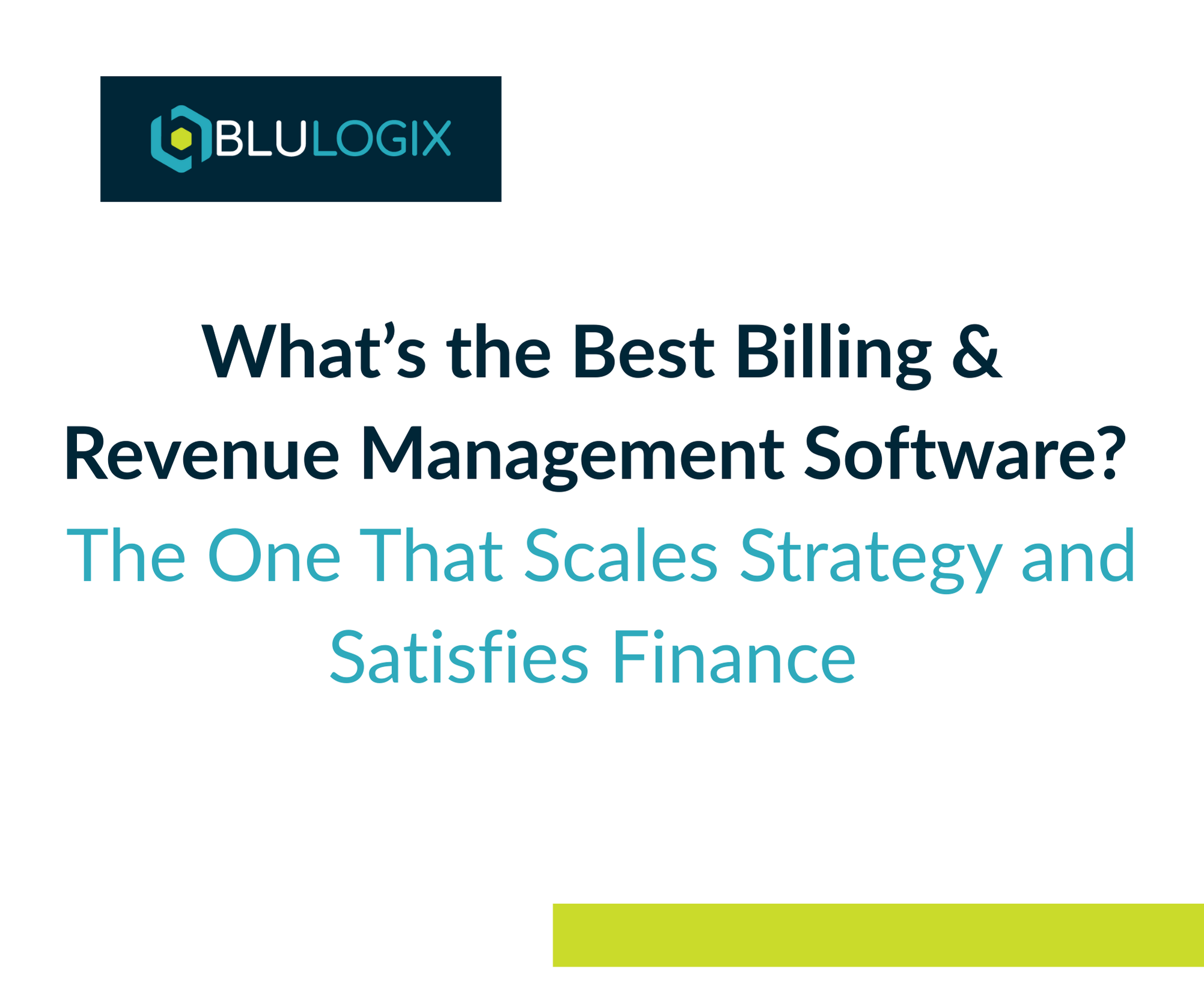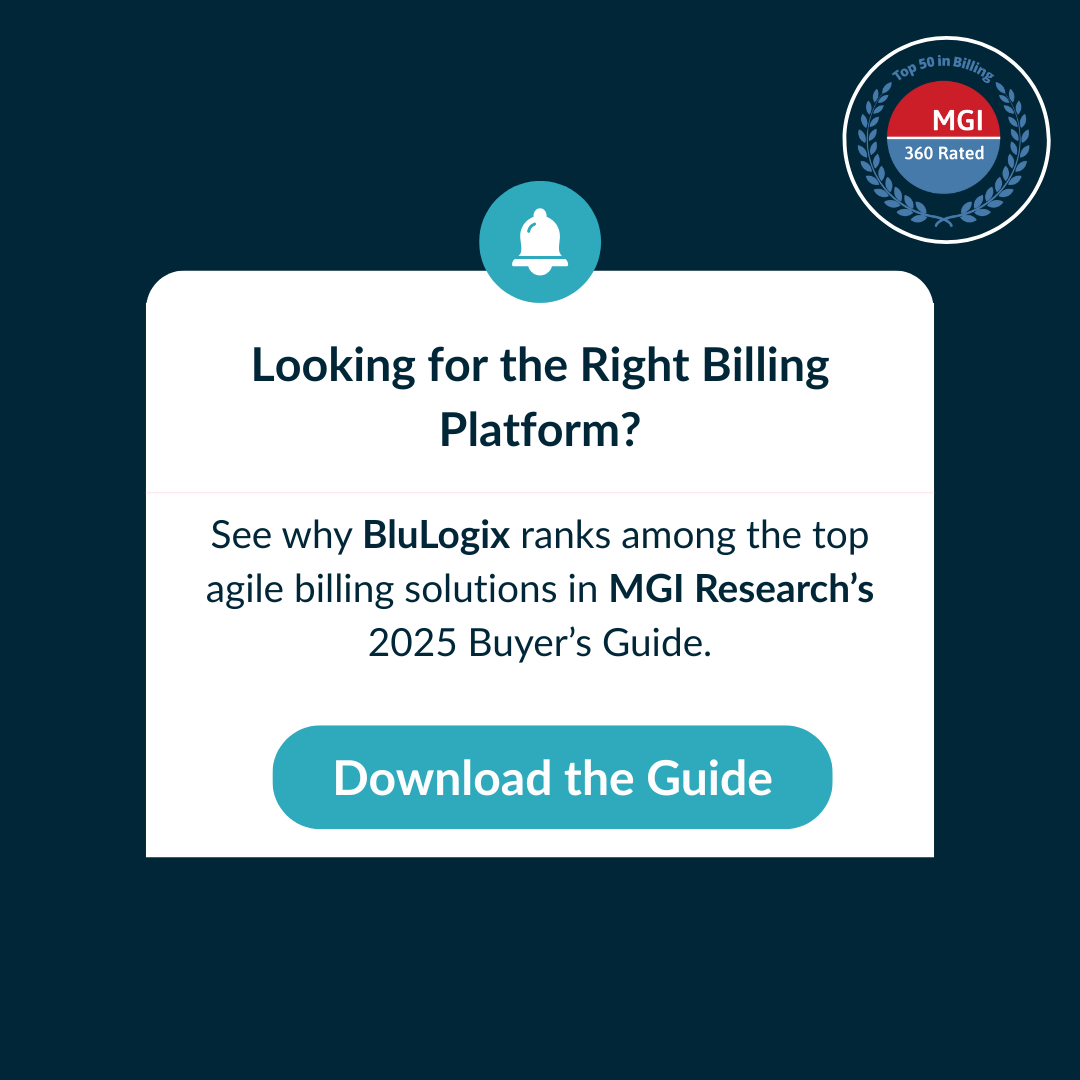How AI is Modernizing Billing Systems: The Future of Revenue Management
As businesses expand into global markets and adopt diverse pricing models, billing complexity is growing exponentially. Traditional billing systems, often reliant on manual processes, struggle to keep pace with dynamic customer demands. Artificial intelligence (AI) is emerging as a game-changer, enabling businesses to streamline operations, enhance accuracy, and optimize revenue management.
AI-driven billing systems go beyond automation—they transform how businesses handle invoicing, detect fraud, forecast revenue, and personalize customer interactions. By integrating AI into billing, companies can stay competitive, ensure compliance, and unlock new growth opportunities.
Ready to see how BluIQ can transform your billing process and help you achieve integrated, automated, and accurate complex monetization? Schedule a demo with a BluLogix billing expert today and take the first step towards revolutionizing your revenue management.
AI’s Impact on Billing Efficiency
Traditional billing models require significant manual effort, leading to inefficiencies and potential revenue leakage. AI-powered automation eliminates these challenges by introducing:
- Real-Time Invoice Generation
AI-driven systems process vast amounts of usage data in real-time, enabling precise and timely invoicing. This eliminates human errors, reduces disputes, and ensures accurate revenue recognition.
- Smart Pricing Optimization
AI analyzes customer behavior, usage patterns, and market trends to recommend optimal pricing strategies. Machine learning models help businesses test and refine pricing in real time, improving customer retention and maximizing profitability.
- Advanced Anomaly Detection
Billing discrepancies can result in lost revenue and customer dissatisfaction. AI-powered fraud detection tools identify inconsistencies, flagging unusual billing activities before they escalate. This enhances compliance and minimizes financial risks.
The Role of AI in Subscription and Usage-Based Billing
For businesses operating in subscription-based and consumption-driven models, AI unlocks powerful capabilities:
- Predicting Customer Usage Trends
AI algorithms analyze historical data to forecast demand fluctuations. This helps businesses anticipate resource needs, optimize pricing, and prevent revenue loss from underutilized services.
- Personalizing Customer Billing Experiences
AI-driven insights allow businesses to create personalized invoices, recommend tailored plans, and offer proactive discounts. This level of customization enhances customer satisfaction and loyalty.
- Automating Payment Recovery & Churn Prevention
AI-powered systems track payment behaviors, detect patterns of delayed payments, and send automated reminders. By predicting at-risk customers, AI enables preemptive engagement strategies to reduce churn and improve cash flow.
Emerging Trends: AI’s Future in Billing
As AI continues to evolve, billing systems will become even more intelligent. Key future trends include:
- AI-Powered Chatbots for Billing Support
AI-driven virtual assistants will provide real-time billing support, handling inquiries, processing payments, and resolving disputes without human intervention.
- Blockchain Integration for Transparent Billing
Combining AI with blockchain will create secure, tamper-proof billing processes, ensuring transparency in financial transactions and reducing fraud risks.
- Predictive Revenue Forecasting
AI will refine revenue forecasting models, identifying financial vulnerabilities and enabling businesses to make data-driven decisions for future growth.
- Generative AI for Billing Analytics
With generative AI, businesses can transform raw billing data into actionable insights. AI will provide intuitive dashboards, automate compliance reporting, and help finance teams analyze trends without needing deep technical expertise.
Conclusion: AI as the Future of Billing
AI is no longer a futuristic concept—it’s an essential tool for modern billing systems. By automating invoice generation, optimizing pricing strategies, and enhancing fraud detection, AI enables businesses to operate with greater efficiency and accuracy.
Companies that embrace AI-driven billing solutions will gain a competitive edge, ensuring sustainable revenue growth and seamless customer experiences. As AI continues to shape the future of billing, those who invest early will reap the long-term benefits of a smarter, more adaptive revenue management system.
Ready to see how BluIQ can transform your billing process and help you achieve integrated, automated, and accurate complex monetization? Schedule a demo with a BluLogix billing expert today and take the first step towards revolutionizing your revenue management.
Learn more

What’s the Best Billing & Revenue Management Software? The One That Scales Strategy and Satisfies Finance

Features That Power Complex B2B Contracts — And How BluLogix Delivers Them



